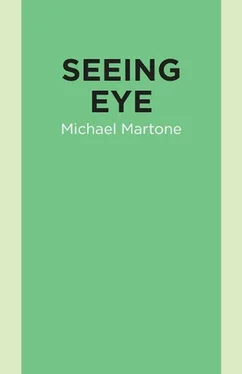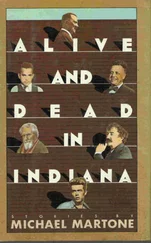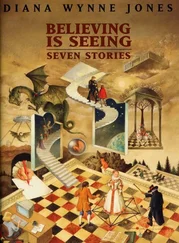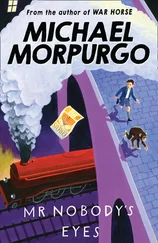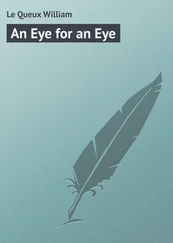Michael Martone - Seeing Eye
Здесь есть возможность читать онлайн «Michael Martone - Seeing Eye» весь текст электронной книги совершенно бесплатно (целиком полную версию без сокращений). В некоторых случаях можно слушать аудио, скачать через торрент в формате fb2 и присутствует краткое содержание. Год выпуска: 2013, Издательство: Dzanc Books, Жанр: Современная проза, на английском языке. Описание произведения, (предисловие) а так же отзывы посетителей доступны на портале библиотеки ЛибКат.
- Название:Seeing Eye
- Автор:
- Издательство:Dzanc Books
- Жанр:
- Год:2013
- ISBN:нет данных
- Рейтинг книги:5 / 5. Голосов: 1
-
Избранное:Добавить в избранное
- Отзывы:
-
Ваша оценка:
- 100
- 1
- 2
- 3
- 4
- 5
Seeing Eye: краткое содержание, описание и аннотация
Предлагаем к чтению аннотацию, описание, краткое содержание или предисловие (зависит от того, что написал сам автор книги «Seeing Eye»). Если вы не нашли необходимую информацию о книге — напишите в комментариях, мы постараемся отыскать её.
Seeing Eye — читать онлайн бесплатно полную книгу (весь текст) целиком
Ниже представлен текст книги, разбитый по страницам. Система сохранения места последней прочитанной страницы, позволяет с удобством читать онлайн бесплатно книгу «Seeing Eye», без необходимости каждый раз заново искать на чём Вы остановились. Поставьте закладку, и сможете в любой момент перейти на страницу, на которой закончили чтение.
Интервал:
Закладка:
“You sure you want that?” I said. The little boys still had their milk teeth. They stood around the cart and sucked the red syrup from the cherry pop, turning it into a chunk of pink ice on a stick. An older girl ran back home with the grimy change and a Drumstick for her mother, who stood in the shade of her front door.
The trees came apart so easily. Two or three chain saws whined at once. Then one idled, putting, as its operator considered his next cut. The sawdust sifted down. Leg-length logs were lowered by rope like scenery on a stage. In the street a man swept the dust and twigs into neat piles with a new push broom, tapping the stiff bristles twice after each swipe.
The chipper ran on its own engine, chewing up the logs and brittle branches. The man on the ground hurled the wood into the blades like he was throwing spears. They caught and the engine coughed and almost stalled until the grinding drum inside bit in and screamed, ripping through the limbs that shot out in shreds up the stack. It had a rhythm like the locusts in the trees at night, and the sound brought the mothers out to watch. I sat waiting, flicking the tinkly bells on the handlebar between the wails that sounded above the sputtering engine. A mother drifted up to my cart and bought something and watched until the trunk crashed down and was sectioned into wheels and rolled away. All the time she held the mushy wrapper away from her body. Then she threw the stained stick on the piles of sawdust and brown leaves.
The houses had been shaded, softened by the canopy above. Now after the trees were cut the houses looked stark and new again, just built, the lawn bald where the children had played. The sky lifted, and I could make out the shapes of dormers and eaves and see the sickly TV antennas twisted on the roofs, saplings that didn’t survive the winter.
I had lived through an age of service. Bread trucks delivered then. Men sharpened knives at your door. There were brushes for everything. Milk in bottles appeared on the stoop. The milk cartons now are printed with faces of news boys who’ve disappeared. They identify the dead with dental records. All that summer the trees kept dying, and the city crews, their saws calling back and forth to each other, cut every elm.
I didn’t cheat the war but went. In the cities they blew up trucks with hand grenades dropped into fuel tanks. A rubber band held the plunger in until the gas dissolved the rubber. There were always two explosions in Saigon. The first to bring the crowd. The streets were filled with bicycles. As they flowed by me, they made a soft sawing sound as soft as chirping crickets.
When I came home, I rode a bike along streets I didn’t recognize. The trees the city planted, the ginkgos and the crimson maples, had filled in. Along the fences the Chinese elms sprayed up, weeds, from all the trimming. The houses were smaller. The hills were steeper. The telephone poles still towered above the new trees, their cables sagging. At one pole a wire angled out from the top and ran to the ground. A long time ago the wire had grown into a tree branch. When they cut that tree down, they cut on either side of the wire, leaving the gray slice behind, still suspended, floating above me. Straddling my bike, I stood there awhile keeping that disk of wood between me and the sun, trying to imagine the time it took for the tree to absorb the wire. The wire hasn’t let go, even now when the disease is dead.
Chatty Cathy Falls into the Wrong Hands
Let me tell you that the boys who stole me from Baby Face, lusting after the secret of this voice, their own hearts racing when they screwed their eyes down to the scale of my dress tipping the scales that shut mine, as good as they were with their hands, came away disappointed when all they found after they found no easy way in (and they had ways) was a whorl of perforations in my chest more like a pattern left by a mustard plaster or a Band-Aid than the actual ventilation of my views; and I told them all I was admitting was sound, all I was allowing was conversation as they tossed me away without so much as another word like a live grenade seconds before I blew, pin pulled out, as if I had the short fuse, armed and fertile as I was without a loop to hang on; if they only would have stopped to hear what I had to say instead of hearing their own inarticulate insides, I would have told them how things work in this world, all right; can a man imitate speech? I ask you; I was born talking, talking borne, wired and whining, content enough to be a thing itself, a person and a place, made to lie on my back and run on, coming to understand why those boys were so uncomfortable with the hollow part of language, and imagining a woman who talks too much; and I find that even if, after plugging me a time or two, the boys had decided to unscrew my noggin to look inside, to uncoil what was left of this doll’s notion and then send my Fuller Brush head back to Baby Face on a Mattel tea plate with my eyes rolled up inside my brain, a replica of screams, a fabrication (after all) of speech playing dumb, I would, always, even as we speak, let that other part of me go on talking (listen to me) until the line runs in.
Evaporation
Your mother can’t even remember why I never drink. She sits upstairs by the bedroom window until the timed diamond lights switch off, repeats every question I ask her.
“What are you doing?”
“What are you doing?” she says.
Kids on bikes racing on the infield drag clouds of dirt from base to base. The softball players drink beer in the stands, telling each other stories about the game they have just played. Their voices carry. It’s against park rules. It’s a public park.
“They shouldn’t be drinking.”
“They shouldn’t be drinking,” your mother says, her face reflected like smoke in the window. I had turned on the light on the chest of drawers to write some letters while I was thinking of it. One to Bill Kaple down at the City Light and another to the reporter I like at WKJG. The next morning, I went and picked up the beer cans from beneath the bleachers, filled the yellow fifty-gallon drum the park board leaves for trash. I flicked out the dregs from each can onto the dust. The beer dribbled into shimmering balls of gray powdered mud almost like mercury before the ground got dry again.
I’ve told you how in 1930 I was working for the Pennsy when the foreman said, “We’re going to have to lay you off, Jimmy.” I was a management trainee, but that day I was a gandy dancer learning the ropes. “Just for a little while,” he said. I wasn’t called back until 1938, but by that time I was working for the City Light, turning off the electricity when people ran up their light bills while they were paying down their gas bills and setting meters again when they paid off the light bill. But I was lucky in 1930, when they laid me off from the Pennsy. I got another job right away as an orderly at the Irene Byron outside of town. I had to live on the grounds, in the ward and come home only on the weekend. I left you and your mother early every Sunday and walked up the Kendallville Road, out into the country to the county farm and the children’s home to the sanatorium where I wheeled the TB patients through the big French doors out onto the screened-in porches even in winter.
I listened to them breathe on those cold nights, the moon throwing shadows of the screens like a net over their wrapped up bodies. Their breath smoked. The screens rattled in their frames when the wind blew. The big engines of the night trains on the Big Four track slipped climbing the steep grade behind the powerhouse, lost their head of steam and panted up the hill.
This was before the repeal of Prohibition. Hospitals were granted an allowance for evaporation of the alcohol they could use. We all knew this. Most of the orderlies stole a tea spoon or two from each big jug, the theft disguised as a part of the fraction that was lost naturally. I kept a Nehi bottle hidden in the steam tunnels too. The tunnels connected all the wards and the cottages to the powerhouse. We used them in winter to go from place to place. The pipes hissed at the joints and sweated hugging the wet walls underground. A few bulbs strung overhead lit the junctions where the tunnels forked off with little puddles of light. I saw the sparkle of other bottles stuffed behind a knot of valves or beneath the wooden duckboard on the floor. I wrapped my bottle in asbestos batting so it looked like a section of discarded scrap pipe.
Читать дальшеИнтервал:
Закладка:
Похожие книги на «Seeing Eye»
Представляем Вашему вниманию похожие книги на «Seeing Eye» списком для выбора. Мы отобрали схожую по названию и смыслу литературу в надежде предоставить читателям больше вариантов отыскать новые, интересные, ещё непрочитанные произведения.
Обсуждение, отзывы о книге «Seeing Eye» и просто собственные мнения читателей. Оставьте ваши комментарии, напишите, что Вы думаете о произведении, его смысле или главных героях. Укажите что конкретно понравилось, а что нет, и почему Вы так считаете.
